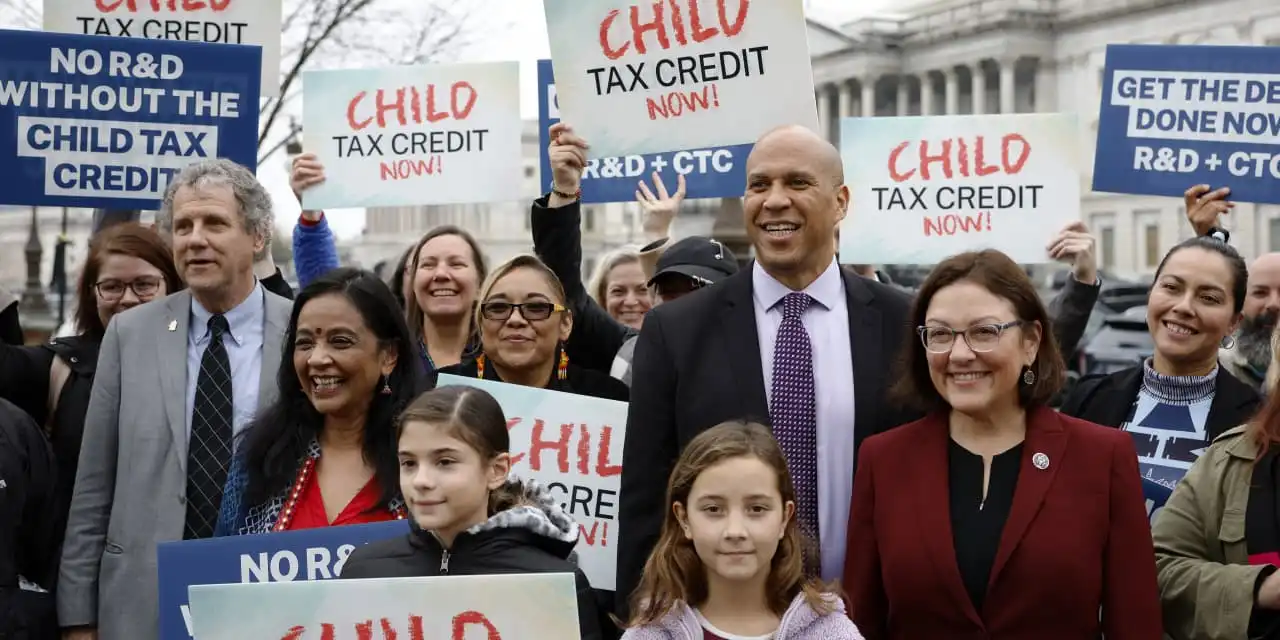Child Tax Credits Expanded Bipartisan Deal Helps Most
Lawmakers propose bipartisan plan to reduce child poverty by expanding child tax credits, targeting help to children who need it most.
Lawmakers are introducing a new bipartisan proposal called the Tax Relief for American Families and Workers Act of 2024, which aims to significantly reduce child poverty. This proposal would expand child tax credits and pair relief for poor and working-class families with certain business tax breaks favored by the Republican party. It is separate from the announced Sunday to avert a government shutdown.
A tax credit reduces your tax liability dollar for dollar by the size of the credit. If the credit is refundable, you get any portion in excess of your tax liability back. Under current law, the maximum child tax credit is $2,000 per qualifying child, and for 2023, the refundable part of the credit is worth up to $1,600 for each qualifying child.
The proposal aims to address the fact that many poorer families make too little to fully benefit from the child tax credit as it is currently structured, since they don't owe income tax. It would increase the maximum refundable portion of the credit to $1,800 for tax year 2023, $1,900 for tax year 2024, and $2,000 for tax year 2025.
"This proposal really targets help to children who need it the most," says Kris Cox, deputy director of federal tax policy at the Center on Budget and Policy Priorities.
The deal, however, isn't as comprehensive as the temporary expansion of the child tax credit under the American Rescue Plan of 2021. That measure boosted the credit by at least $1,000 per child that year and made it fully refundable. After the extra credit expired, the latest proposal is an effort to alleviate it.
If passed, the bipartisan agreement would apply to tax years 2023, 2024, and 2025. It was announced by Senate Finance Committee Chairman Ron Wyden (D-Ore.) and House Ways and Means Committee Chairman Jason Smith (R-Mo.).
One groundbreaking aspect of the deal is that the $2,000 child tax credit would be indexed for inflation in 2024 and 2025. That should benefit middle-income and affluent families, who generally have enough of a tax liability to benefit from the full $2,000 credit per child. The measure would also give families with multiple children a greater benefit, as it would change the calculation of the refundable credit to a per-child basis instead of a per-family basis.
These modifications would have far-reaching effects: In its first year, the proposal would benefit more than one in five children under 17 and would lift as many as 400,000 children above the poverty line. The expanded tax credit would sunset at the end of 2025, barring Congressional action.
While the proposal has bipartisan support, its passage is "nowhere close to a guarantee," says Marc Goldwein, senior policy director for the Committee for a Responsible Federal Budget. While sponsors hope to pass the legislation by the end of the year, a more likely scenario if the legislation succeeds would be passage in late February or March.












Comments on Child Tax Credits Expanded Bipartisan Deal Helps Most